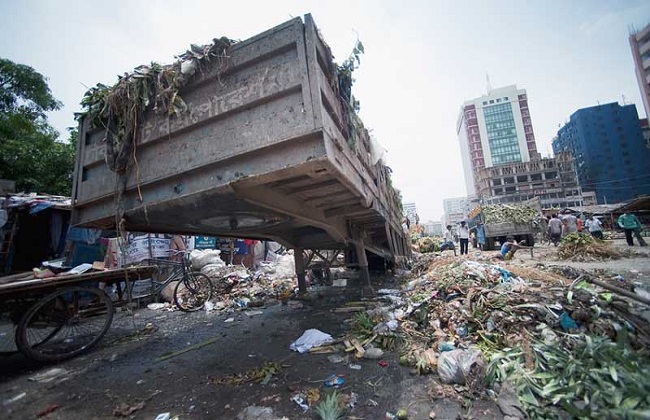
Bangladesh capital Dhaka has ranked the fourth least livable city in the world, according to the Economist Intelligence Unit (EIU) annual global survey.
The worldwide league table ranks 140 cities on a range of factors, including political and social stability, crime, education and access to healthcare.
Dhaka has been ranked 137thamong 140 cities with 33.5 points. It scored 55 in stability, 16.7 in healthcare, 30.8 in culture and environment, 33.3 in education and 26.8 in infrastructure.
The Bangladesh capital ranked the third worst livable city in the Global Livability Index 2019 and the 2nd worst in 2018 Index.
As the world continues to grapple with the coronavirus pandemic, the metropolitan city of Auckland in New Zealand has been named the most livable city globally by EIU.
That’s largely due to the country’s successful handling of Covid-19 which allowed schools, theatres, restaurants and other cultural attractions to remain open during the survey period from February 22 to March 21, 2021, according to the EIU.
New Zealand implemented a strict nationwide lockdown for several weeks last year to slow the spread of the virus. It also shut its international borders to most travelers.
Asia-Pacific cities dominated the top 10 rankings this year, even as the pandemic caused overall livability around the world to decline.
The top 10 most livable cities in the world, and their scores according to The Global Livability Index 2021, are: Auckland, New Zealand (96.0), Osaka, Japan (94.2), Adelaide, Australia (94.0)
Wellington, New Zealand (93.7), Tokyo, Japan (93.7), Perth, Australia (93.3), Zurich, Switzerland (92.8), Geneva, Switzerland (92.5), Melbourne, Australia (92.5),Brisbane, Australia (92.4).
The livability index ranks cities based on more than 30 qualitative and quantitative factors across five broad categories: stability, health care, culture and environment, education and infrastructure.
Due to the pandemic, the EIU added new indicators such as stress on health-care resources as well as restrictions around local sporting events, theatres, music concerts, restaurants and schools.
‘Big shake-up’ in rankings
The impact of Covid-19 has been fairly obvious in the rankings, according to Simon Baptist, global chief economist at the EIU.
“There’s been quite a big shake-up in terms of, certainly the top 10, but also right throughout the ranking, based upon the Covid-19 situation,” he told CNBC.
Cities that were in lockdown or were experiencing a surge in cases during the survey period saw their scores reduced on several criteria, which led to many European cities falling down the ranks, Baptist explained.
That includes the Austrian city of Vienna, which consistently ranked near the top over the last several years. This year, however, it failed to break into the top 10 and came in 12th position.
On the other hand, cities in Australia, New Zealand and Japan remained relatively open, with good availability of services, while their health-care systems were resilient due to a comparatively low number of cases, he added.
The Hawaiian capital of Honolulu was the biggest gainer on the index, moving up 46 places to finish 14th due to its efforts to contain the spread of the coronavirus and rapid vaccine rollout. Among other cities, Taipei finished 33rd while Singapore came in 34th.
Asia vs. Europe
On a regional average, Asia ranked well below North America and Western Europe, according to the EIU. Damascus in Syria remained the world’s least livable city – Syria marked 10 years of civil war this year.
“Asia has some of the world’s most livable cities, it also has some of the least livable,” Baptist said. While cities in Australia, New Zealand and Japan dominated the top 10 positions, places like Dhaka, Bangladesh, Karachi, Pakistan and Port Moresby, the capital of Papua New Guinea, languished near the bottom and have been doing so for a while,” he added.
Since the first survey period ended this year, some of the top cities in Asia-Pacific saw a spike in Covid-19 cases, including Melbourne and Tokyo. On the other hand, European and North American cities have aggressively rolled out their vaccination programs and are in the process of opening up.
Australia and New Zealand have not yet re-opened their borders to most travelers – a factor that Baptist said may affect the future rankings of their cities.
“It’ll be interesting to see there, if things in Europe and the US have opened up more, especially in terms of international travel. But (if) things in Australia and New Zealand still have not, then we might find the ranking of Australian and New Zealand cities suffering a bit,” Baptist said, adding that he expects the European cities to potentially show a big improvement by the next survey period.
